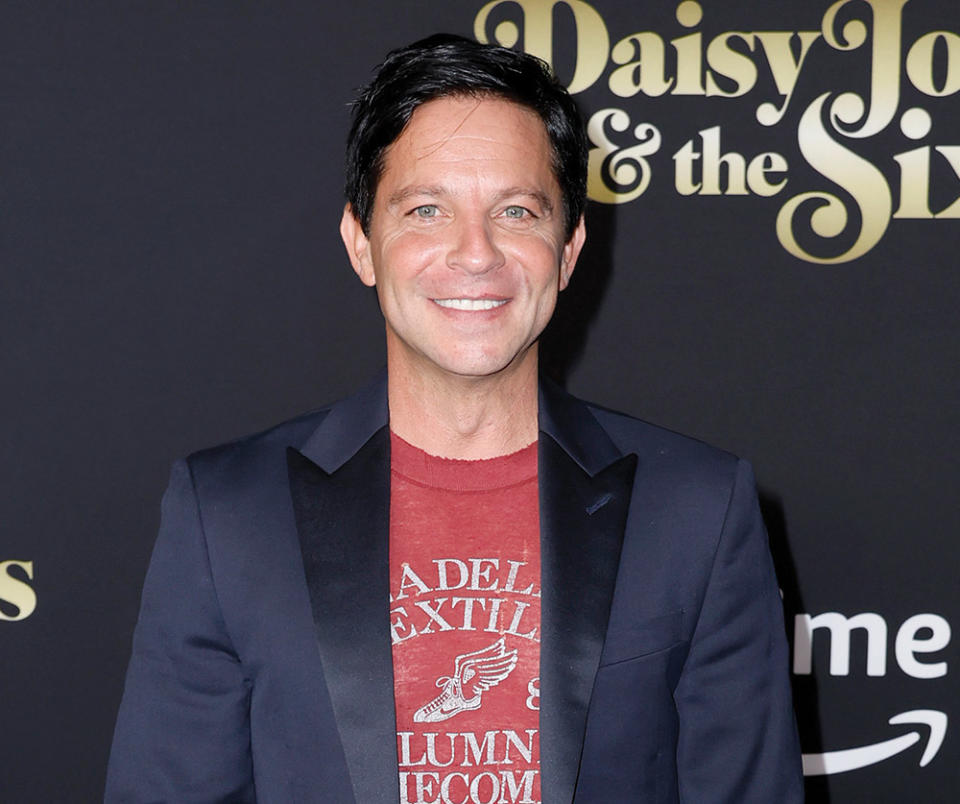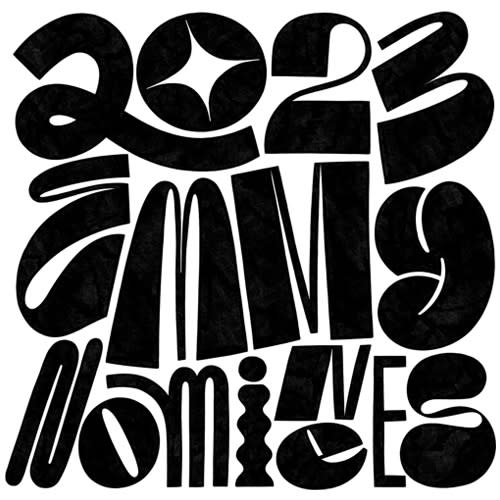‘Daisy Jones & the Six’ Showrunner on a Possible Real-Life Concert With the Cast: “Everyone Involved Really Wants It”
- Oops!Something went wrong.Please try again later.
- Oops!Something went wrong.Please try again later.
- Oops!Something went wrong.Please try again later.
- Oops!Something went wrong.Please try again later.
- Oops!Something went wrong.Please try again later.

For Daisy Jones & The Six showrunner Scott Neustadter, the biggest challenge in adapting Taylor Jenkins Reid’s book about a fictional band was when he’d marry its two components: singer-songwriter Daisy Jones, played by Riley Keough, and The Six, a group fronted by addict and rocker Billy (Sam Claflin). The drama hinged on the two characters sharing as much screen time as possible, but the source material demanded they stay apart for nearly three whole episodes. As a sort of compromise, Neustadter explains, Amazon adopted an unconventional rollout to lure viewers and, as it turns out, TV Academy voters.

You have one of the few streaming shows that didn’t go full binge or weekly, instead dropping two or three episodes at a time. Why the staggered release?
More from The Hollywood Reporter
Guest Essay: How 'George & Tammy' Captured My Parents as Human Beings First, Musical Icons Second
'Hocus Pocus 2' Delivered "Cosmic Costume Design" With Magical Flourishes
'Fire Island' Director Says Film Shoot "Was Like Gay Summer Camp"
We talked about that at length. As the show unfolds, so do these songs, so we knew there were movements — like classical music. There is very much a beginning, with a kind of rise that culminates in Daisy and Billy meeting each other. That’s when it kicks into a new gear. In those middle episodes, where the band is recording, none of them knowing if it’s going to work out or not, the audience is very much involved in their creative process. Then you had the tour and all the drama there, before ending with the final show and the aftermath of it all. It just felt like it made sense to us.
Did you get a sense of how people watched it?
Everybody watches TV differently, and everyone has a different attitude about what the best cadence is — bingeing or waiting for the next episode. This was a hybrid, and some of the episodes had a pause for a breather baked in. Others we felt that it would’ve been best enjoyed if you watched them in a row. In the future, I’d look at the material and assess what made the most sense, because every project has a different best version of how to consume it.
Was anything left out that you wish you’d been able to include?
I think about things that I wished we could have spent more time on. It was not really in the filming or the editing, because we were block-shooting and had a limited amount of time. We ended up not shooting a couple of scenes that would have been nice, but almost all of them were just for color. We did cut an entire episode of the script, though. Between the budget and COVID, it felt like we could make do with 10. But initially we had 11 scripts. I’m glad that nobody could tell.
Where was the episode you lost?
The middle, which was kind of an interesting experience for someone who’d never done anything like this before. When I read the novel, I carved out what I thought was 13 episodes. That’s what we wound up selling. Then you get under the hood and realize that one part is actually very similar to another. You condense and combine. You do that kind of creative decision-making early on. It was basically cut down to 11 and a half episodes, because that last one is slightly longer and has that coda. At one point, we thought we could extrapolate that into a whole episode. But we don’t need an entire episode of them in old-person makeup, watching them deal with the aftermath of everything that happened. The worry we had was it was too much information.
What was the most challenging part to crack in doling out that information?
The hardest stuff was in the beginning. Everybody really feels like the show hits another gear when Billy and Daisy finally come together. There’s a tension in needing them to get together as early as possible, but it wouldn’t make sense for it to happen in the first episode. There’s so much backstory to get through. You want those two characters together as early as possible — but, when they do meet, it has to be impactful. We talked a lot about negotiating those two needs. I could never figure out how to do it any earlier than when we did.
Part of me did wonder if there were executive notes like, “They need to be in the same room already.”
Yeah … of all the things that we talked about over the course of the writers room and beyond, that was always the number one consideration: “Is there any way to get them together faster?” We do have a little bit of it, almost, in the documentary portions at the top of the episodes. You see them together. But as far as the moment in time when Billy meets Daisy and the shit hits the fan, we just could not figure out any earlier than episode three.
Several members of your cast have spoken about getting together and performing music from the show. Do you think there’s a chance of that ever happening?
Everybody involved really wants it to. It’s a matter of figuring out when they could all be in the same place at the same time again. They’re all going to go off and do really amazing things. But I know that they’ve kept up their practicing on the off chance that maybe it could happen sooner rather than later. They’ll be ready when it happens. It would be cool to watch, for all concerned.
You’ve done a lot of work in adaptation, and Taylor Jenkins Reid has an increasingly deep bench of novels. Would you take a stab at another?
I love Taylor’s stuff. She’s so great with character and world-building — my kind of world-building, at least. I have no interest in The Lord of the Rings kind of stuff. Taylor’s world-building is of ’70s recording studios, 1940s Hollywood and Malibu surfers. But, going into Daisy, I knew the music world and had done decades of research, so I felt like I could bring something to this. That’s how I always approach any adaptation: “How can I contribute?” I would love to see what else she’s got cooking. Being a fan of novels, wanting to replicate the experience for the viewer has always been my number one goal as a writer. We were working on a handful of other adaptations and hopefully will be again when this is over.
How is your strike going?
It’s super weird. Very awkward. I usually go to Paramount [to picket]. I’m an introvert, so it’s not my favorite thing to do — to see people and have to be social. We’re all doing it. We’re hoping that cooler heads prevail, that we get back to the bargaining table.
What’s your take on some of these sticking points, like artificial intelligence?
It feels like climate change. We were all hoping we would get a couple more years of normalcy, despite the fact that we know something nefarious is around the corner. Well, it’s happening now. It’s right here. And if we don’t address it at this very moment, it’s never getting better. It’s terrifying, and it’s going to put a lot of people out of work. It’s interesting that entertainment is kind of leading the charge. I think a lot of other industries will get behind it if we figure out how to monitor and police this.
Interview edited for length and clarity.
This interview was coordinated through Scott Neustadter’s personal PR in accordance with a WGA ruling after the writers strike that began May 2.
This story first appeared in an August stand-alone issue of The Hollywood Reporter magazine. To receive the magazine, click here to subscribe.
Best of The Hollywood Reporter
From 'Fuller House' to 'And Just Like That': 30 Shows That Prove TV Reboot Culture Is Alive and Well
"This Was One Hot Mess": Lisa Vanderpump, Keke Palmer and the THR Reality Roundtable
Tom Holland Breaks Free: Talking Zendaya, ‘The Crowded Room’ and the Future of Spider-Man


